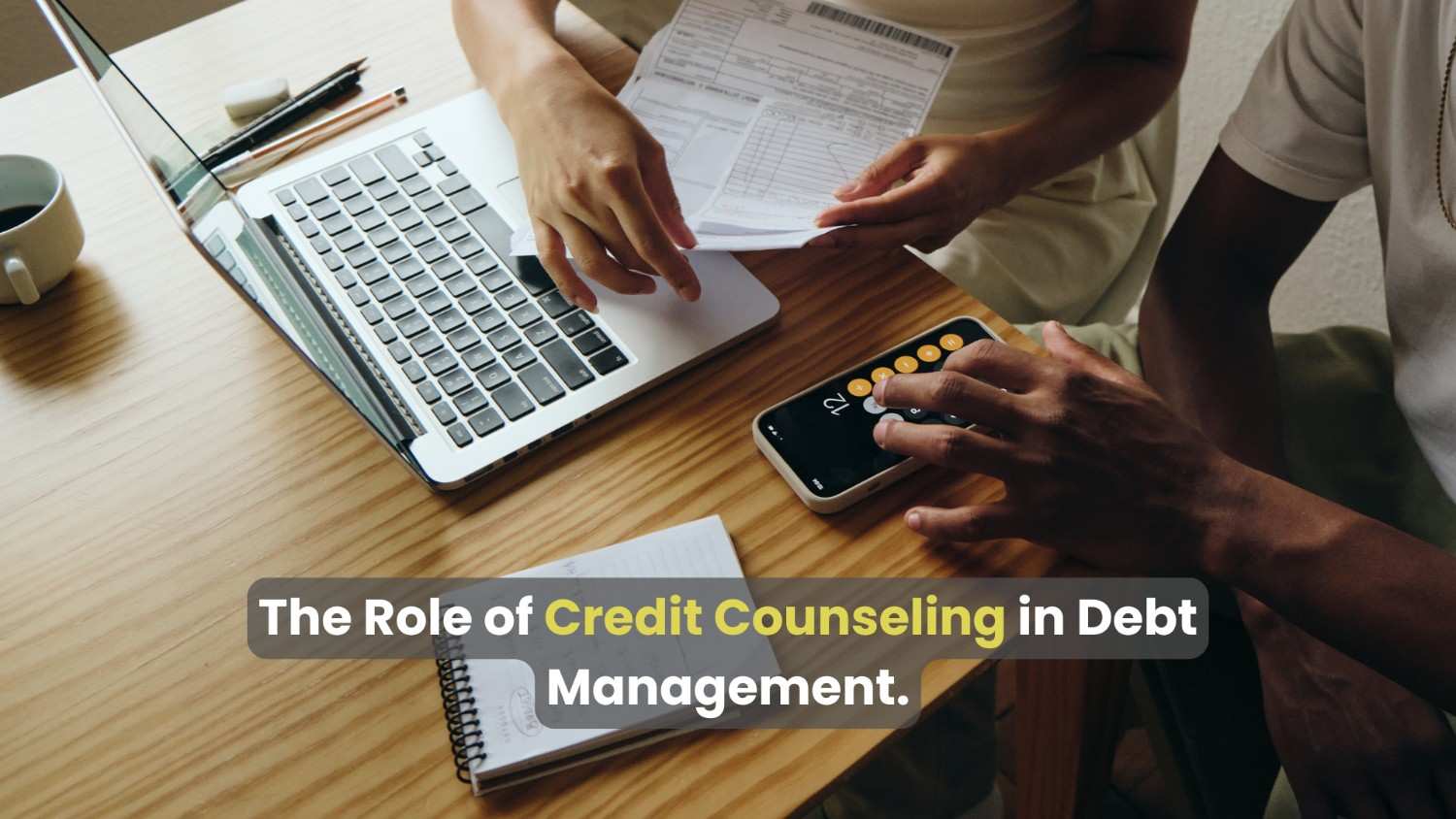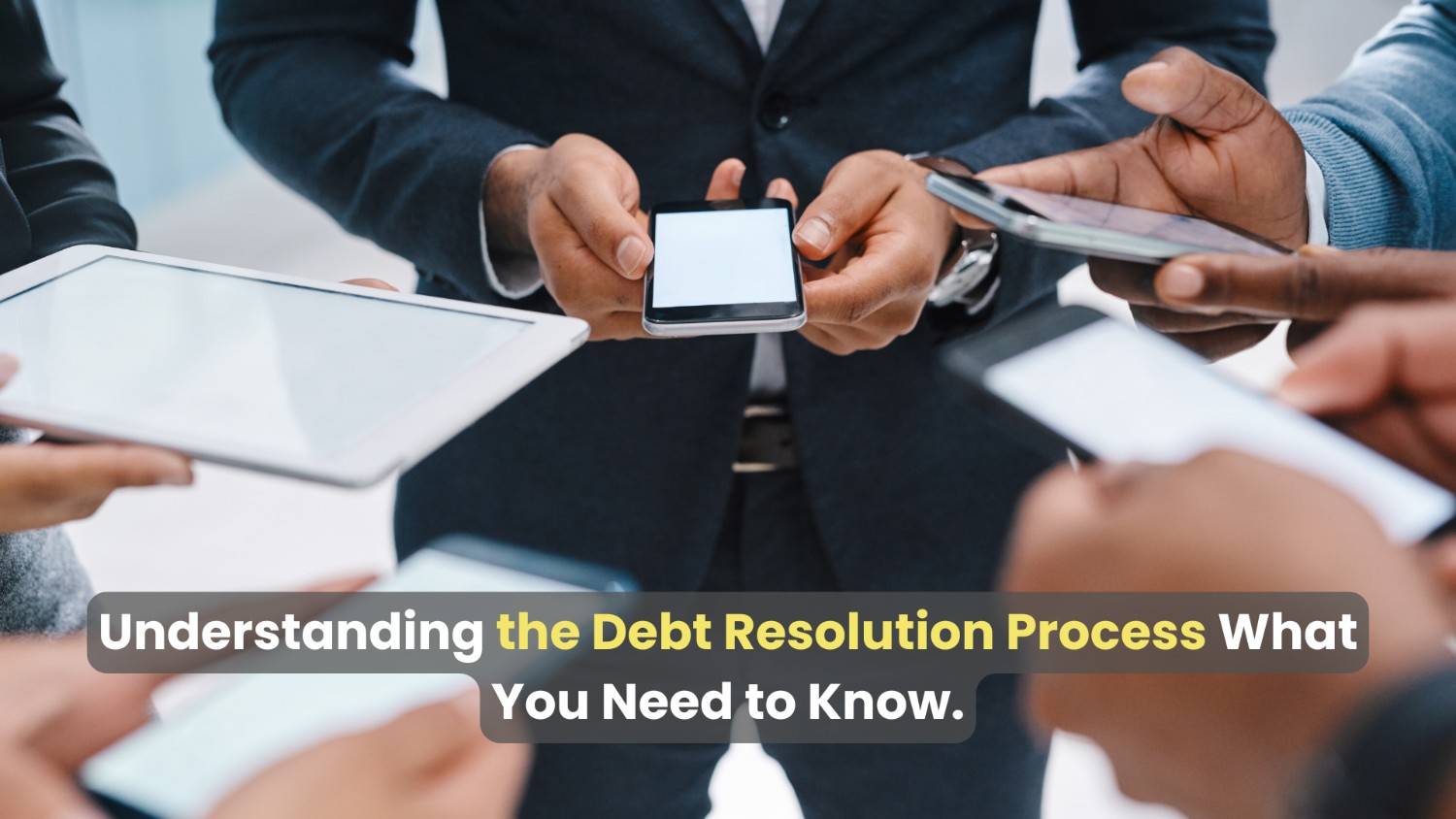· Debt Management · 6 min read
The Role of Credit Counseling in Debt Management: Key Insights for Financial Success
Discover how credit counseling can help you manage your debt more effectively. Learn the benefits, process, and how it differs from other debt solutions like debt consolidation and resolution.

Managing debt can be a daunting challenge, but it’s important to take control before things spiral out of hand. Credit counseling is one of the most effective and accessible tools for people who are struggling to make ends meet financially. In this article, we’ll explore the role of credit counseling, how it works, its benefits, and how it can help you regain control over your financial future.
What is Credit Counseling?
Credit counseling is a service provided by certified professionals to help individuals manage their debt and finances. The goal of credit counseling is to provide guidance on creating a realistic repayment plan, improving budgeting skills, and offering education on personal finance.
How It Differs From Other Debt Solutions
While credit counseling focuses on education and creating a sustainable repayment plan, debt consolidation and debt resolution work by directly reducing the amount of debt or restructuring payment terms. Credit counseling, however, often involves working with a counselor to improve overall financial habits and make the most of existing financial resources.
How Credit Counseling Works
Credit counseling generally begins with a consultation, where a certified counselor reviews your financial situation. This may include assessing your income, debts, and expenses to help you understand where your money is going.
Step-by-Step Process
Initial Consultation: You meet with a counselor who will gather details about your financial situation, including your income, expenses, and debt.
Debt Management Plan (DMP): Based on your situation, the counselor will create a personalized debt management plan. This plan outlines how you’ll pay off your debts over time.
Creditor Negotiations: In some cases, the counselor will work directly with creditors to lower interest rates or waive late fees.
Monthly Payments: You’ll make one monthly payment to the credit counseling agency, which then disburses the payments to your creditors.
The Role of a Certified Credit Counselor
Credit counselors are trained professionals who provide advice and services that help you manage your debts effectively. They don’t just help you navigate the immediate financial burden—they also equip you with the tools and knowledge to avoid falling into debt again in the future.
Benefits of Credit Counseling
Credit counseling offers several advantages that can significantly improve your financial life.
Financial Education and Budgeting
One of the primary benefits of credit counseling is the financial education you receive. Counselors provide valuable insights into budgeting, saving, and managing money. With these skills, you can avoid overspending and make more informed financial decisions.
Creating a Realistic Repayment Plan
The credit counselor helps you create a structured repayment plan. This plan takes into account your income and expenses, ensuring you can meet your financial obligations while still living comfortably.
Dealing with Creditors
A key part of credit counseling involves negotiating with creditors. The counselor may be able to reduce your interest rates or stop collection efforts. This can ease the pressure you may be feeling from aggressive creditors.
Avoiding Scams and High-Interest Rates
Credit counselors often help you navigate tricky financial decisions, such as avoiding high-interest loans or debt settlement scams. They guide you away from predatory lenders and offer safe, legitimate options for managing your debt.
Credit Counseling vs. Debt Consolidation and Debt Resolution
Although credit counseling, debt consolidation, and debt resolution all aim to help you reduce your debt, they approach it differently.
Credit Counseling vs. Debt Consolidation
Debt consolidation involves combining multiple debts into one loan with a potentially lower interest rate, making payments easier to manage. However, credit counseling focuses more on providing education and creating a personalized debt management plan rather than taking out new loans.
Credit Counseling vs. Debt Resolution
Debt resolution involves negotiating with creditors to settle debts for less than what’s owed, often resulting in a significant hit to your credit score. Credit counseling doesn’t involve settling debts but rather helps you manage them through an affordable, structured plan.
Who Should Consider Credit Counseling?
Credit counseling is ideal for individuals who are struggling with unsecured debt, such as credit card bills or medical expenses, and need guidance on managing their payments.
Signs You Need Credit Counseling
You’re unable to pay bills on time
You’re using credit cards to pay off other debts
You’re getting harassed by creditors
You’re unsure how to create a budget
Is Credit Counseling Right for You?
If you feel overwhelmed by debt and need help organizing your finances, credit counseling might be the right choice. It’s particularly useful for those who don’t want to take drastic measures, such as debt settlement, but need expert advice on managing and reducing their debts.
Choosing a Credit Counseling Agency
When choosing a credit counseling agency, it’s crucial to find one that’s reputable and trustworthy. Look for agencies that are accredited by a professional association like the National Foundation for Credit Counseling (NFCC) or the Financial Counseling Association of America (FCAA).
Red Flags to Watch Out For
Agencies that charge high upfront fees
Unclear or misleading promises about debt reduction
Lack of certification or accreditation
Long-Term Impact of Credit Counseling
One of the most significant benefits of credit counseling is its long-term impact on your financial health. Not only does it provide immediate relief, but it also helps you develop healthy financial habits for the future.
How It Helps Improve Your Financial Future
By working with a credit counselor, you gain a better understanding of budgeting, credit management, and savings, helping you avoid financial pitfalls in the future.
Impact on Your Credit Score
While credit counseling doesn’t directly impact your credit score, the debt management plan can lead to improved credit over time as you make regular, on-time payments and reduce debt.
Common Misconceptions About Credit Counseling
There are several myths surrounding credit counseling that might discourage people from seeking help. Some individuals may believe that credit counseling is only for those who are deep in debt or that it’s a one-size-fits-all solution.
Debunking Myths
Myth 1: Credit counseling is only for people with severe debt.
Fact: Credit counseling is for anyone who needs guidance on managing debt, whether they have minor or major financial challenges.Myth 2: Credit counseling will harm my credit score.
Fact: Credit counseling itself doesn’t directly affect your credit score, but making timely payments through a debt management plan can improve your score over time.
Conclusion
Credit counseling plays a pivotal role in helping individuals manage their finances and pay down debt in a sustainable way. By offering financial education, debt management plans, and creditor negotiations, credit counselors provide a much-needed service to those looking for guidance. If you’re struggling with debt, credit counseling could be the first step toward regaining control over your financial life.
FAQs
**Is credit counseling free?
**Many agencies offer free consultations, but there may be fees for ongoing services, particularly for debt management plans.**How long does credit counseling take?
**The duration of credit counseling depends on your individual debt situation and the payment plan set up, but it can take several months to a few years.**Will credit counseling affect my credit score?
**Credit counseling itself doesn’t negatively affect your credit score, but a debt management plan can help improve your score over time.**Can credit counseling help with student loans?
**Credit counselors can assist with managing student loan repayment, but they don’t directly offer loan forgiveness or settlements for student debt.**How do I know if I need credit counseling?
**If you’re struggling to make payments, falling behind on bills, or getting harassed by creditors, credit counseling may be the right choice for you.



